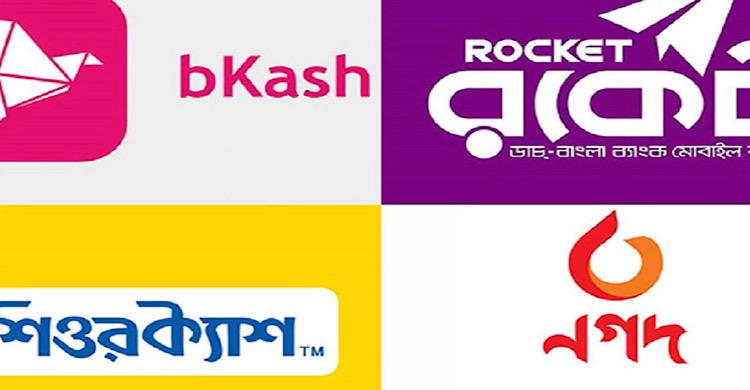Bangladesh on the cusp of a fintech boom, if challenges addressed


Experts are calling to tackle regulatory, cybersecurity, and inclusion challenges as Bangladesh’s fintech industry enters a transformative era.
Driven by rapid growth in mobile financial services, the launch of digital banking, high reshaping payments, lending, and wealth management are contributing to shape Bangladesh cashless economy.
According to data highlighted by the Bangladesh Fintech Innovation Council (BFIC), with more than 500 startups now active across payments, lending, wealth management, and digital banking, Mobile Financial Services' transactions amounted to $158 billion (Tk 17.37 trillion) in 2024, according to Bangladesh Bank's figures.
That reflected a 28 percent year-on-year increase from 2023. On average, over Tk 4,800 crore is now transacted daily, placing Bangladesh among the world’s busiest mobile money markets.
The country has more than 239 million active MFS accounts, outnumbering its population, and is supported by a network of 1.8 million agents in both urban and rural areas. Market leaders bKash, Nagad and Rocket continue to dominate, with bKash reporting Tk 5,058 crore in revenue and Tk 315 crore in profit last year.
The Era of Digital Banks
The growth momentum is set to intensify as Bangladesh Bank has formally begun receiving applications for digital banking licences from September 1, 2025, with submissions open until September 30. The central bank has also raised the minimum paid-up capital requirement to Tk 300 crore, seeking to ensure financially strong entrants in the sector.
Fintech consultant and public speaker Engineer Md Firoz Kabir said the move marks “a breakthrough event for Bangladesh’s financial sector,” adding that it would accelerate the journey toward a cashless economy, fintech innovation and digital financial inclusion.
Industry insiders say competition will be intense as traditional banks, telecom-linked firms and technology startups prepare to expand their footprint in fintech. Beyond established players, platforms such as Chaldal, Pathao and Sheba.xy have begun integrating financial technology into their services, using their extensive customer data to launch new digital offerings.
“Fintech is no longer a peripheral story; it is reshaping how Bangladeshis save, borrow and transact,” said Ahmed Nazim, an AI and data science enthusiast. He noted that while some startups may struggle, those that succeed will drive financial inclusion for SMEs, lower transaction costs and make services more accessible to ordinary citizens.
BFIC's Road to Cashless Bangladesh
Looking ahead, BFIC outlined key trends in its 'Fintech Time Machine' that projects the road ahead from 2025–2030. They said the next five years won’t just transform financial services, they’ll "dissolve the line between finance and life itself, making money management borderless, intelligent, sustainable, and invisible".
By the end of 2025, it projects AI-Driven Hyper-Personalization, in which banking evolves into a personal financial companion. Predictive AI anticipates user needs, automates savings, and optimises investments in real time.
Next year, 2026, it envisions "Cross-Border Digital Currencies." Central Bank Digital Currencies and stablecoins become standard, powering instant, low-cost global payments and reshaping remittances.
In 2027, BFIC expects to establish "Blockchain-Backed Trust". Decentralized identity, smart contracts, and tokenized assets enter mass adoption, redefining compliance, transparency, and asset ownership.
That is followed by the adoption of "Green & Sustainable Fintech" in 2028, as climate-conscious finance goes mainstream. Platforms integrate ESG scoring, carbon tracking, and green lending as default features.
The year 2029 is earmarked for a "Quantum Finance Breakthrough". Quantum computing reshapes financial modeling, enabling real-time risk assessment, fraud detection, and ultra-secure cryptography.
Finally in 2030, BFIC predicts the "Rise of Autonomous Finance". Self-learning financial ecosystems emerge—machines trading, insuring, and investing autonomously, creating an economy that operates at machine speed.
Experts believe Bangladesh stands at the threshold of a historic leap in financial services. With strong regulatory backing, rising digital adoption and the entry of powerful new players, the country’s fintech sector is poised to become a cornerstone of its economic transformation.
Challenges to be addressed
At the recently held Cashless Bangladesh Summit 2025, Policy Exchange Bangladesh Chairman and CEO M Mansur Reaz presented a keynote paper titled ‘The Role of Fintech in Building a Cashless Economy’, highlighting gaps in digital banking policies. He pointed out that Bangladesh has around 120 million adults, yet only 46 million are currently covered under digital banking.
During the panel discussion in the same event, it was revealed that 60% of the population remains unbanked, while 65% of bank accounts are not connected to digital banking services. Additionally, only 2.6 million bank users currently use credit cards.
President of The Institute of Cost and Management Accountants of Bangladesh (ICMAB) Mahtab Uddin Ahmed said, “Bangladesh is at a critical juncture in its financial evolution. The shift to a cashless economy is no longer a distant goal but an immediate necessity. This summit has brought together the right stakeholders to act on creating a digital-first financial system that promotes transparency, security, and inclusion.”
The number of people in Bangladesh who have little access to the banking system is still very high. Therefore it could be a challenge to bring them all under the digital financial network. And that makes it all the more imperative to take this challenge seriously.
